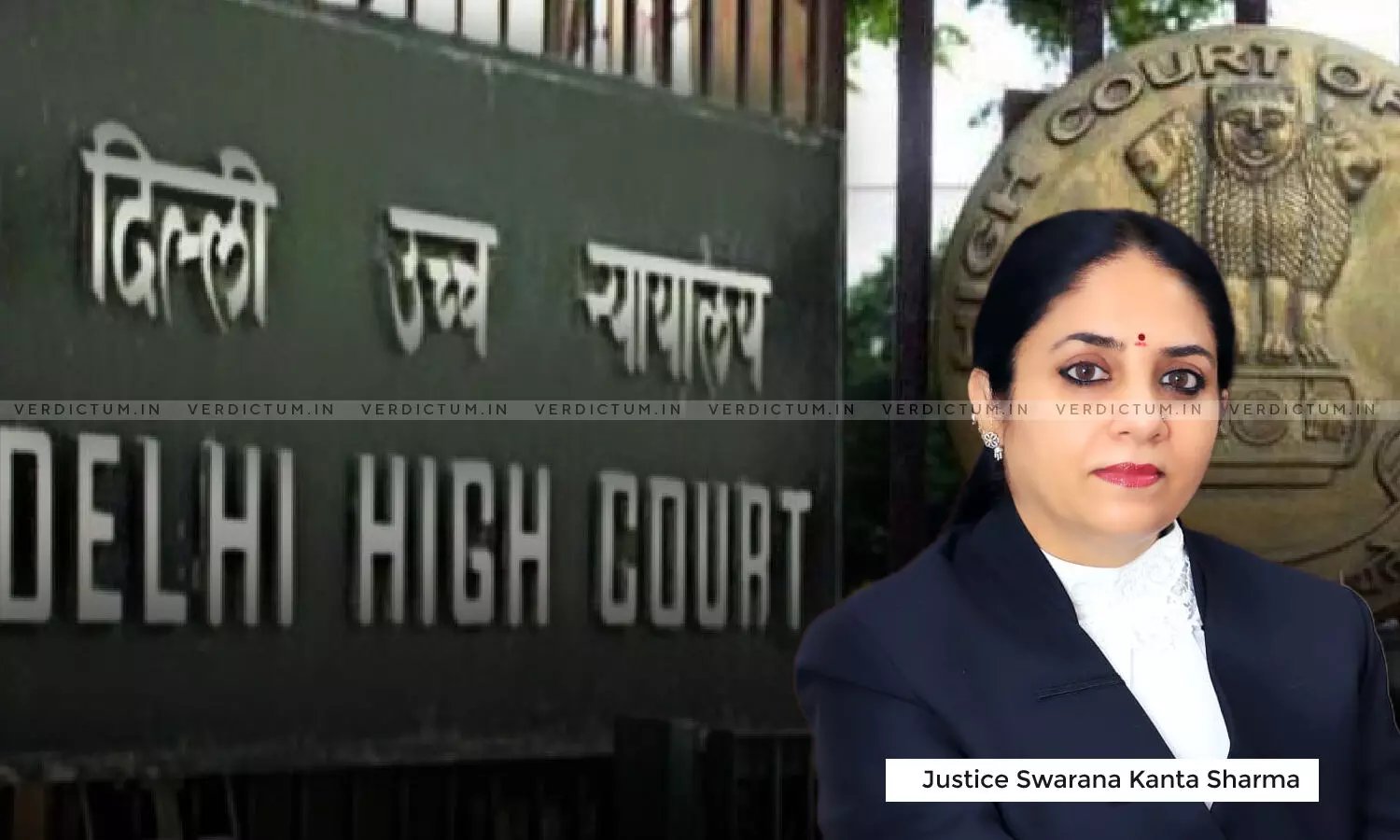
Justice Swarana Kanta Sharma, Delhi High Court
Domestic Violence Act Doesn’t Distinguish Between First Or Subsequent Marriage For Purpose Of Entitlement To Maintenance: Delhi High Court Dismisses Husband's Petition
 |
|The Delhi High Court was considering a Petition whereby the petitioner husband sought setting aside of the judgment vide which he was directed to pay Rs 1 lakh per month to the wife.
While upholding an order of maintenance imposed upon a husband, the Delhi High Court has observed that the Domestic Violence Act does not distinguish between a first or subsequent marriage for the purpose of entitlement to maintenance. The Court held that once a man voluntarily enters into the marriage and accepts the woman and her children, he cannot use that as a defence to resist his statutory obligations.
The High Court was considering a Petition whereby the petitioner husband sought setting aside of the judgment vide which he was directed to pay Rs 1 lakh per month to the respondent wife from the date of the filing of the petition till the final disposal.
The Single Bench of Justice Swarana Kanta Sharma observed, “As regards the petitioner’s submission that the respondent’s marriage with him was her second and that she had children from a previous marriage, such a submission is wholly misconceived. The Domestic Violence Act does not distinguish between a first or subsequent marriage for the purpose of entitlement to maintenance. Once the petitioner voluntarily entered into the marriage and accepted the respondent and her children, he cannot now use that as a defence to resist his statutory obligations.”
Advocate Bimlesh Kumar represented the Petitioner while Advocate Sumit Rana represented the Respondent.
Factual Background
The respondent-wife filed a complaint under Section 12 of the Protection of Women from Domestic Violence Act, 2005 (D.V. Act), seeking reliefs under Sections 18, 19, 20, and 22. The Mahila Court directed the petitioner husband to pay ad interim maintenance of Rs. 12,000 per month to the respondent wife. Subsequently, the respondent wife preferred an appeal under Section 23 of the D.V. Act. The Trial Court enhanced the maintenance to Rs 33,000 per month. Aggrieved by the said order, the respondent wife filed an appeal and the Additional Sessions Judge enhanced the maintenance amount to Rs 1 lakh. The petitioner husband was also directed not to sell his property without obtaining prior permission from the Mahila Court.
Arguments
This petitioner challenged the impugned order before the Court on the ground that the Additional Sessions Judge failed to appreciate the medical condition of the petitioner husband, who is suffering from Ankylosing Spondylitis and requires monthly medical expenditure of approximately Rs 1.56 lakh.
Reasoning
The Bench noted that the petitioner husband, as per his own income tax returns, had declared an annual income of Rs 28 lakh for the assessment year 2020–2021 and Rs 36 lakhs for 2021–2022. Even though the petitioner has claimed that he was incurring monthly medical expenses of Rs 1.8 lakh for treatment of Ankylosing Spondylitis, no medical bills, prescriptions, or supporting treatment records had been placed on record to substantiate such a claim. “The learned Trial Court has rightly observed that in the absence of documentary proof, such claims remain bald and self-serving assertions”, the Bench said.
The Court was not persuaded by the contention of the petitioner that the respondent wife is capable of earning and, therefore, should be denied maintenance. “While capability to earn may be a relevant factor, it must be demonstrated that the wife is gainfully employed or receiving income sufficient to maintain herself, which is not the case here”, it stated while further observing that the income affidavit filed by the respondent wife revealed a meagre income of Rs 12,000 per month, with remaining expenses reportedly met through loans or borrowings. On the contrary, the petitioner’s declared and admitted assets and lifestyle clearly reflected substantial financial resources.
The Bench found merit in the wife’s grievance that the petitioner had attempted to alienate his properties during the pendency of the proceedings, allegedly to defeat her legitimate claims.
Thus, finding no infirmity in the order of the Trial Court, the Bench dismissed the Petition.
Cause Title: A v. B (Case No.: Crl.Rev.P. 622/2024)
Appearance:
Petitioner: Advocates Bimlesh Kumar, Sushil Kumar Singh, Monika Gupta
Respondent: Advocate Sumit Rana